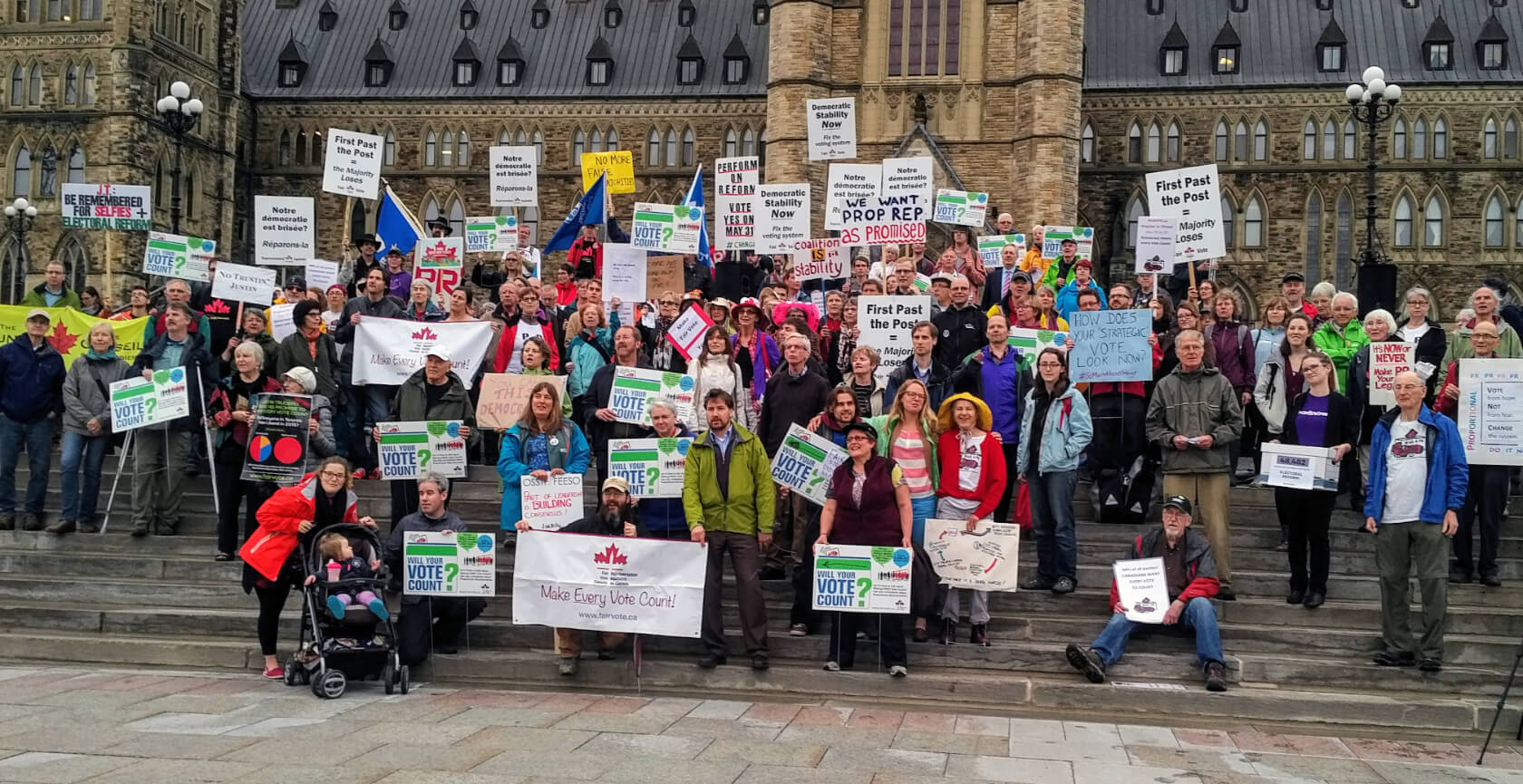Editorial: About that referendum this fall on how we vote – and how we’ll be represented; Part One.
There’s a lot of palaver about the upcoming referendum on electoral reform in BC. The questions that will be asked on the referendum ballot have been released, and the government has made other commitments. Let’s look at these things.
First, the questions. Based on news released so far, there will be two questions. The first question will be perfectly straight-forward: it will ask people whether they would rather stick with the old system of first-past-the-post that we have been using for so long, OR whether they would like to change to a proportional representation system. Some form of proportional representation is now used in most of the world’s major nations.
That’s a simple choice. Easy to answer: status quo, or a change to proportional representation?
The second question is more complicated; but the good news is that voters don’t have to answer the second question if they don’t want to.
The second question asks voters which of three proposed forms of proportional representation they would prefer, if BC votes for a change to proportional representation. But only people who have a preference among those three systems need to answer, and if they want, they can rank the three systems. If voters choose proportional representation, the choice of which type we use will be determined by those who do answer the second question.
Let’s leave descriptions and explanations of the three proposed forms of proportional representation for another day, another column. For now, let’s examine the other commitments the BC government has made around potential electoral change.
People who oppose change have raised the spectre of freaky, lunatic radicals gaining seats in the BC Legislature. Definitions of fringe-y undesirables vary, of course – some die-hard members of any given political party seem to regard members of any other political party as radicals, and think no one but members of their chosen ideology should have any role at all in government. But that’s an unrealistic wish. So what has the BC government done to prevent weird fringe parties from gaining power?
They’ve set a threshold of five percent of the popular vote. Any party who gains less than five percent of the vote, either provincially or regionally depending on the system chosen, will not be entitled to any “top-up” seats. To gain representation in the legislaure with less than 5% of the total votes cast, a party’s candidate would have to win an electoral district. Arguably, any party supported by five percent or more of the popular vote deserves to have a voice; and remember — having a voice is very different from holding power or changing anyone else’s mind.
What if we change to proportional representation and then decide we don’t like it?
The government has incorporated a “try before we buy” safeguard: if voters vote for a change to proportional representation, BC will go through two election cycles under the new system – and then have an opportunity to either stay with proportional representation, or return to first-past-the-post.
New Zealand made a change from first-past-the-post to a mixed-member proportional system in the mid-1990s, and in 2011 it also had a second referendum for citizens to decide whether or not to remain with the new proportional system, or return to the old first-past-the-post. A majority of New Zealanders voted to remain with their mixed-member proportional choice.
Some people have expressed a concern that proportional representation will result in a loss of “strong majority” governments. Let’s think about that for a minute.
We have had a series of “majority” governments elected with a minority of votes, because of the peculiar non-proportionality of first-past-the-post elections with more than two parties. Many consider government by a majority of seats in the Legislature that were gained by a minority of votes, such as 39% or so, as being a rather weak majority, or a false majority, not a strong one — even if they do wield 100% of the legislative power on the basis of their minority of votes.
Proponents of proportional representation point out that minority rule is unfair and undemocratic– and that is what we have.
With proportional representation, decisions are made with the support of a true majority; representatives of a majority of voters must support legislation before it can pass. No more minority rule.
At the beginning of this editorial, I commented that there’s a “lot of palaver” about the referendum. I learned recently that some people – highly intelligent and generally well-read people – are not really aware of what it all means, despite all the noise – or perhaps because of some of it. A very dear and well-educated old friend called me up the other day, and in the course of a wide-ranging conversation, I asked what she thought about the electoral change referendum questions. She didn’t know about them, and didn’t have any clear idea of what proportional representation means; she thought ranked ballots were a form of proportional representation — they’re not. That’s why I’m continuing to write about our electoral system, and the potential change to a proportional representation system, and trying to help more people to understand the significance of this potential change.
To me, it’s one of the most important and exciting political possibilities that has come along for a very long time. We could become more democratic. We could all be more accurately represented in our government. Perhaps more voters would actually vote. No one would have to decide whether or not to vote “strategically.” Perhaps there would be less incentive for negative campaigning, and more incentive for the members of different parties to work together for the common good.
Would there still be problems? Of course. No system is perfect; they all consist of humans, and we’re well-known for being . . . well, human. But I think there is very real hope for improvement with proportional representation.
























